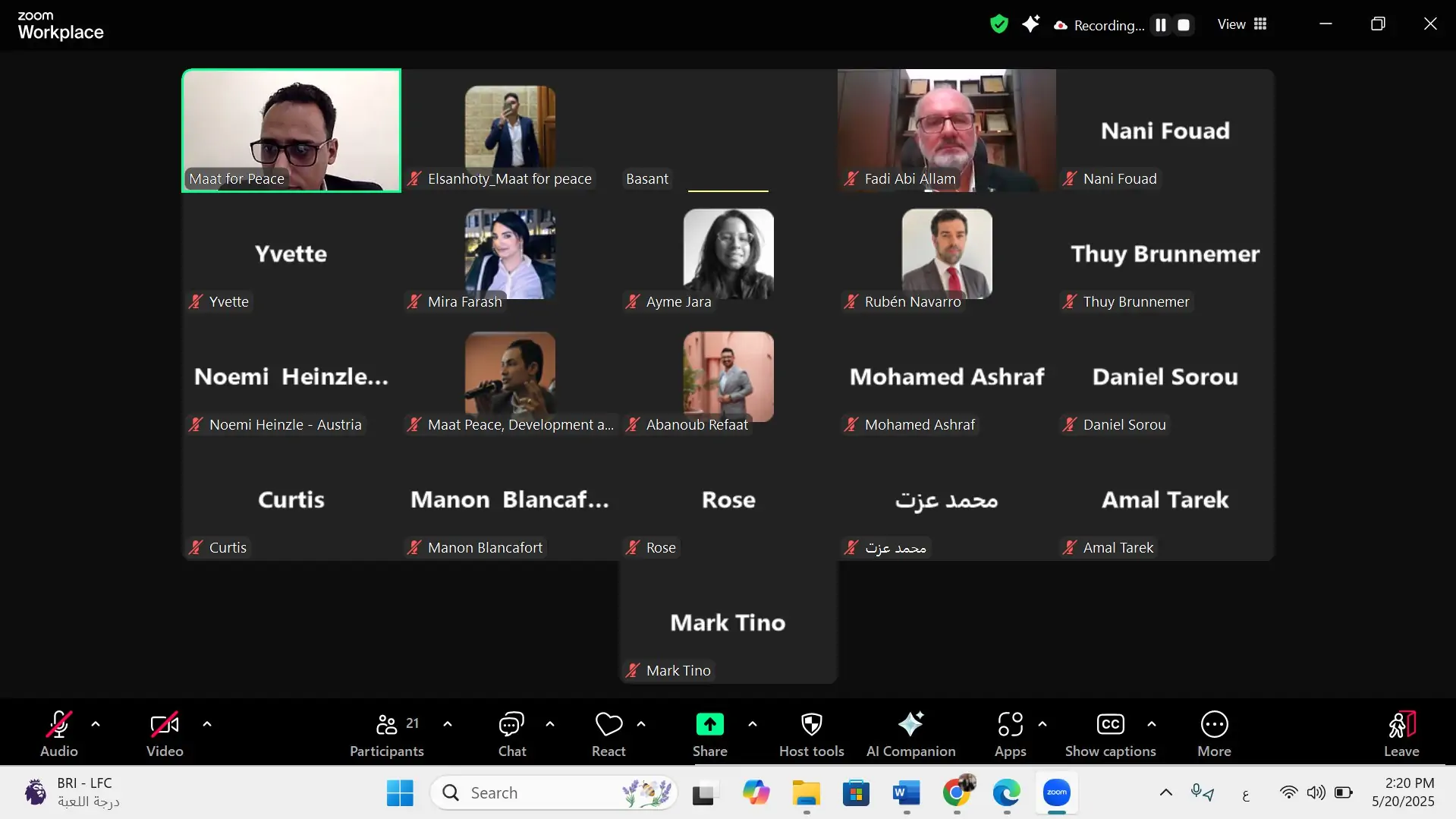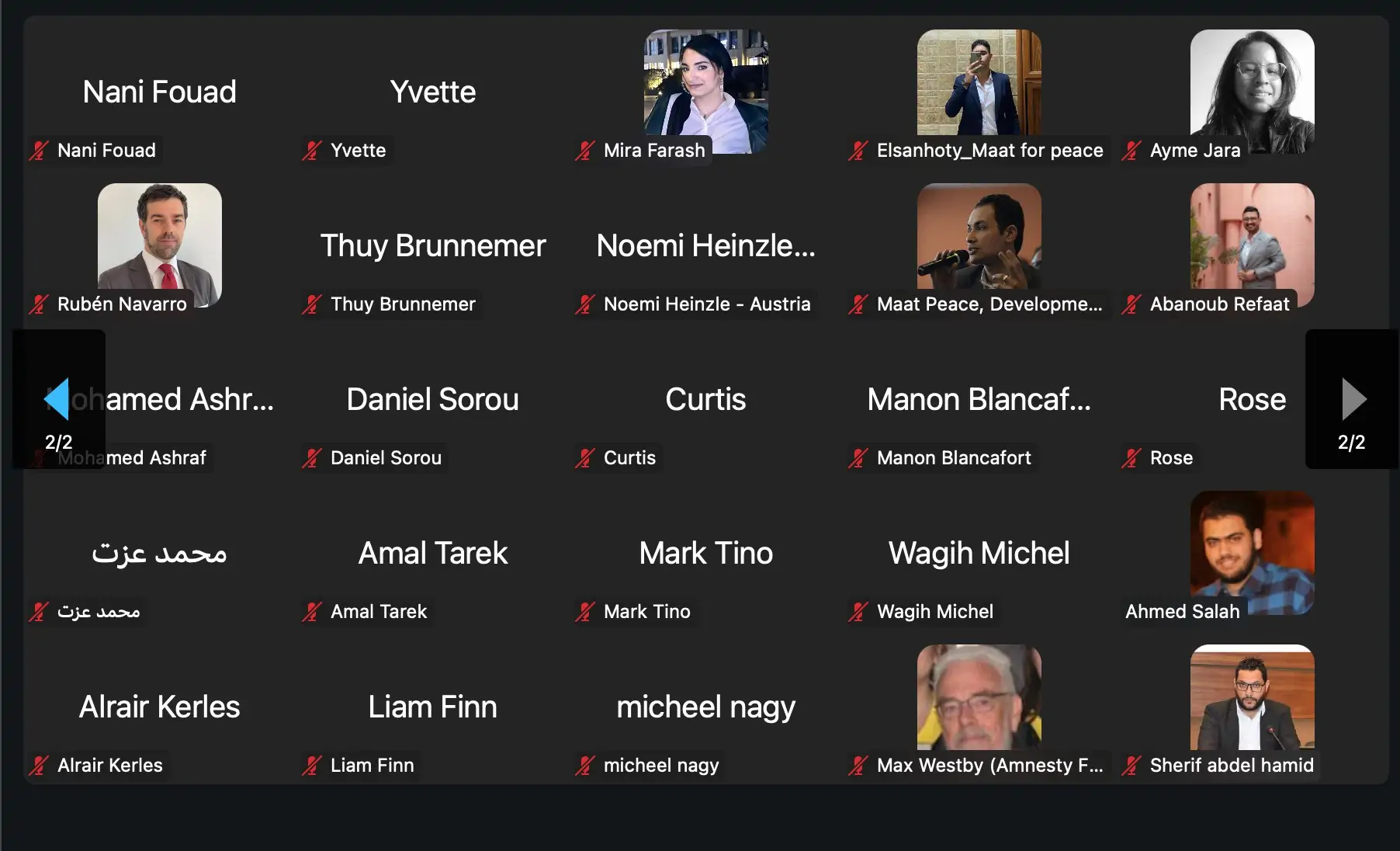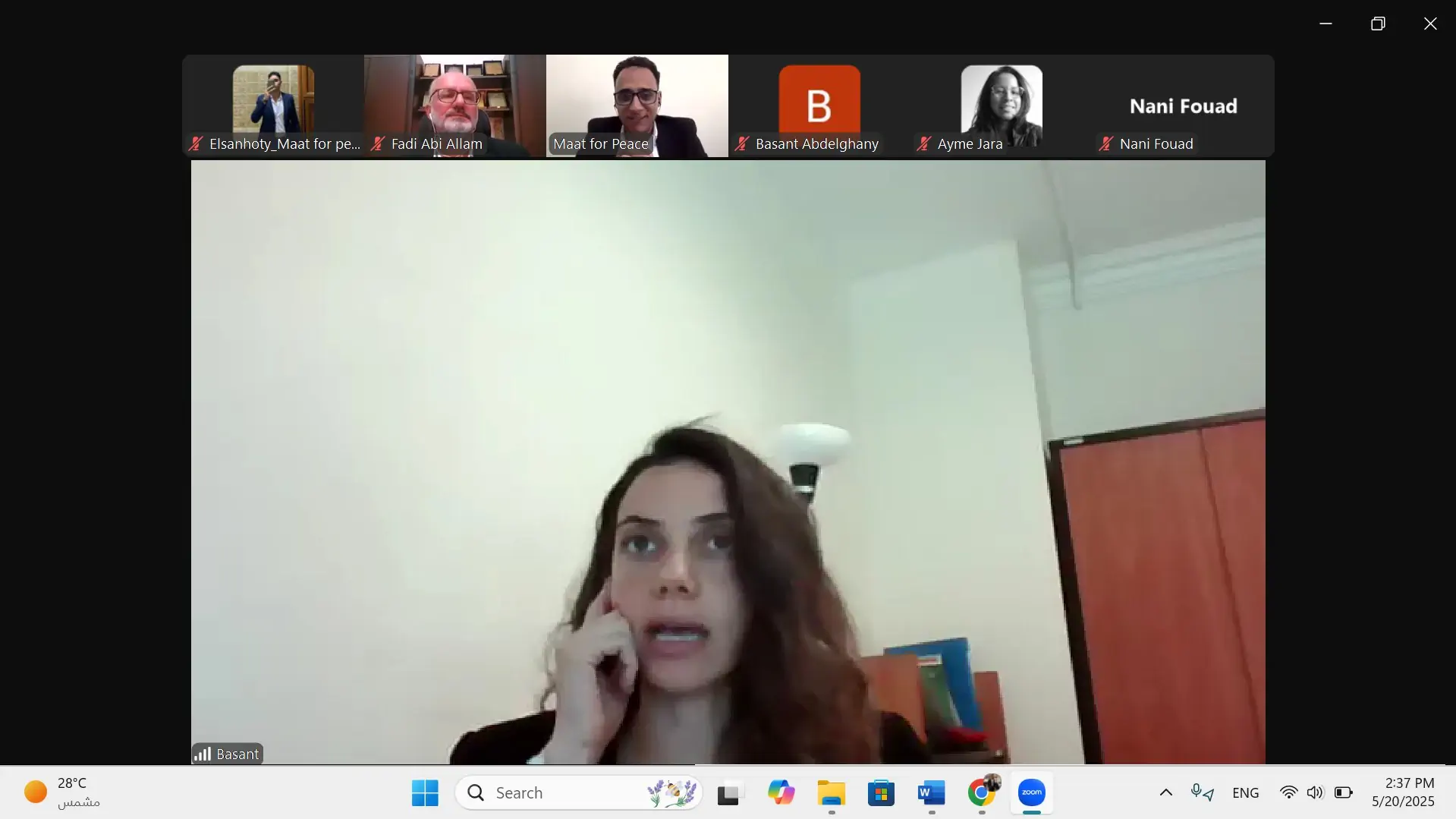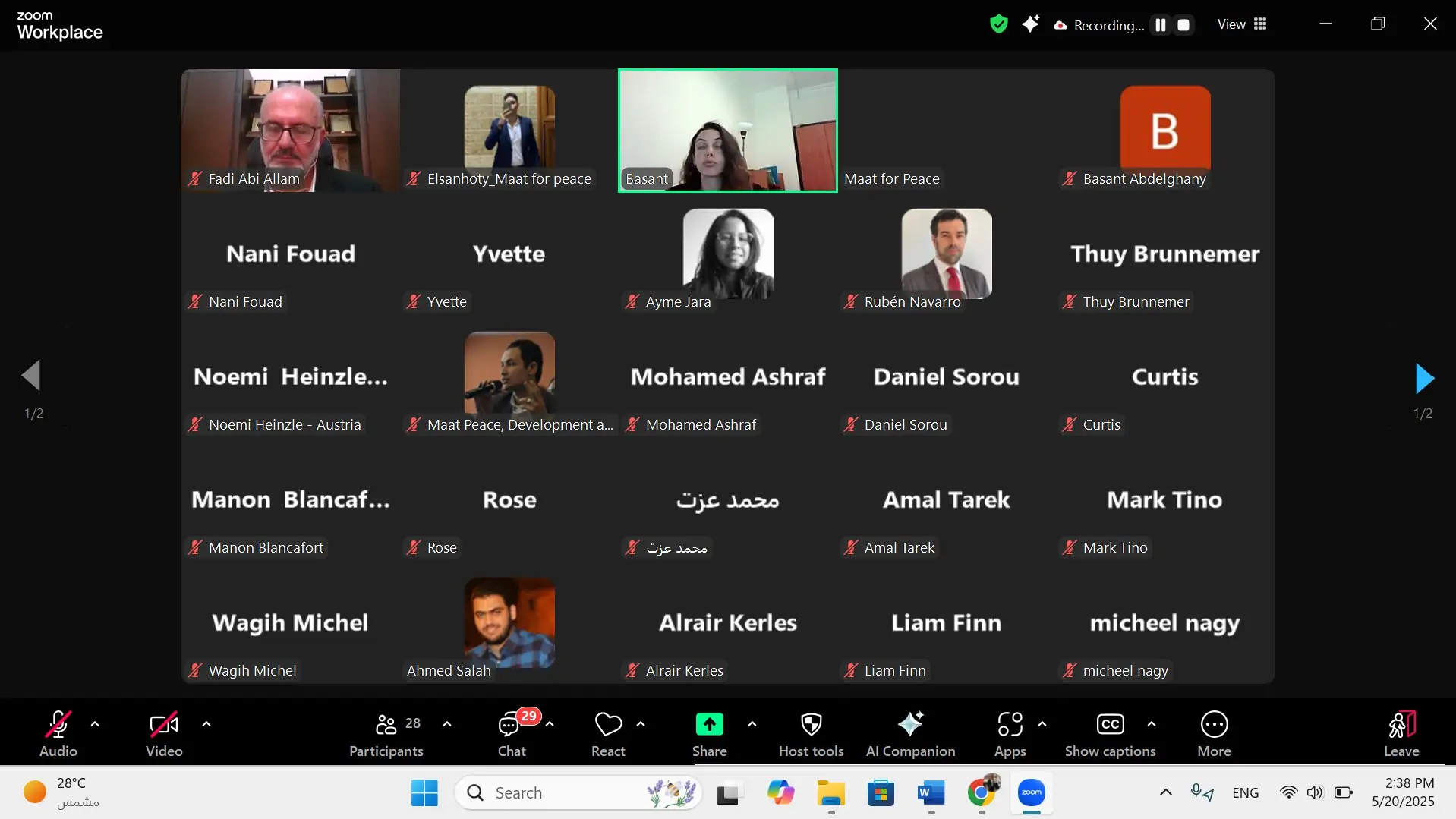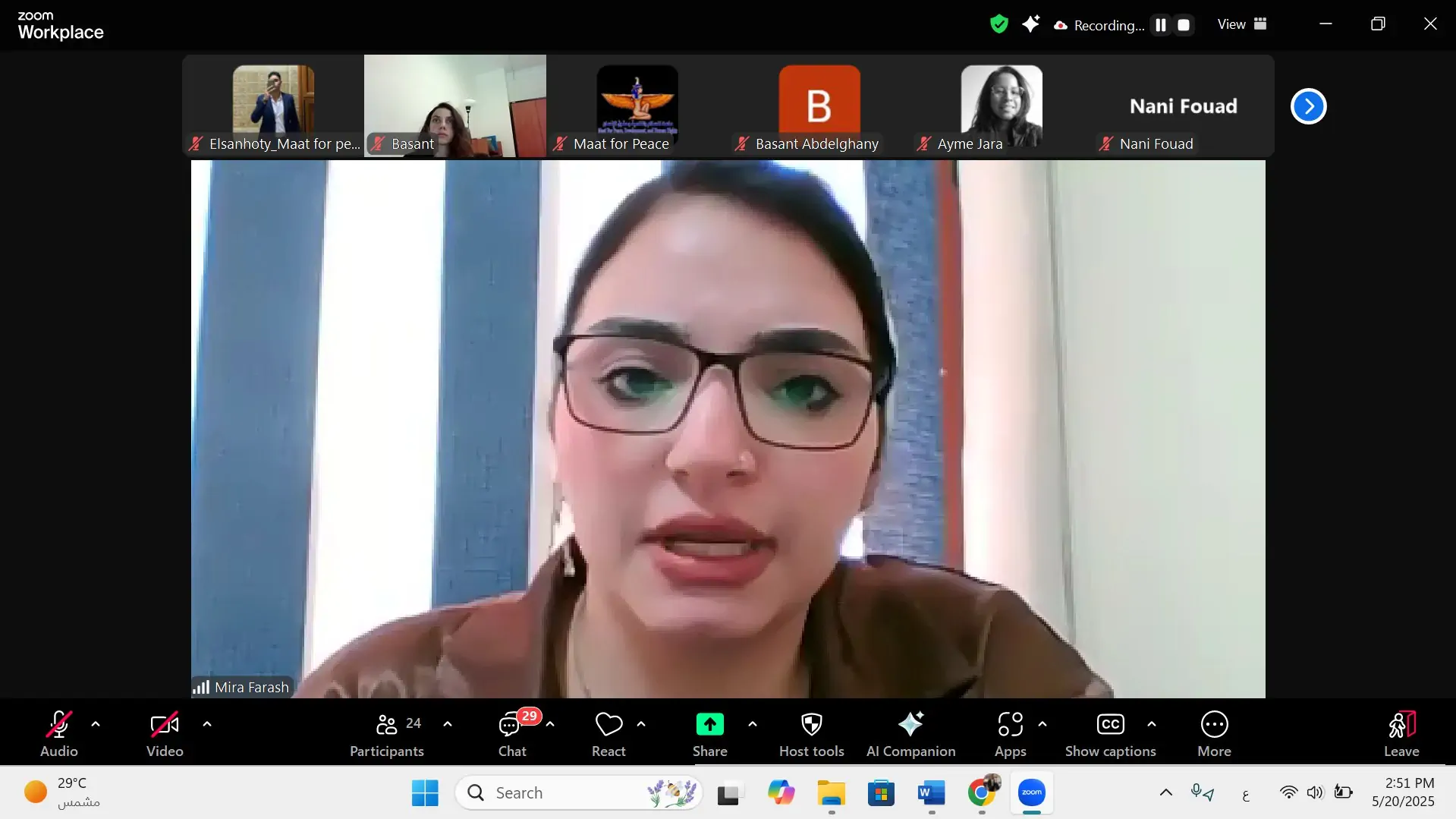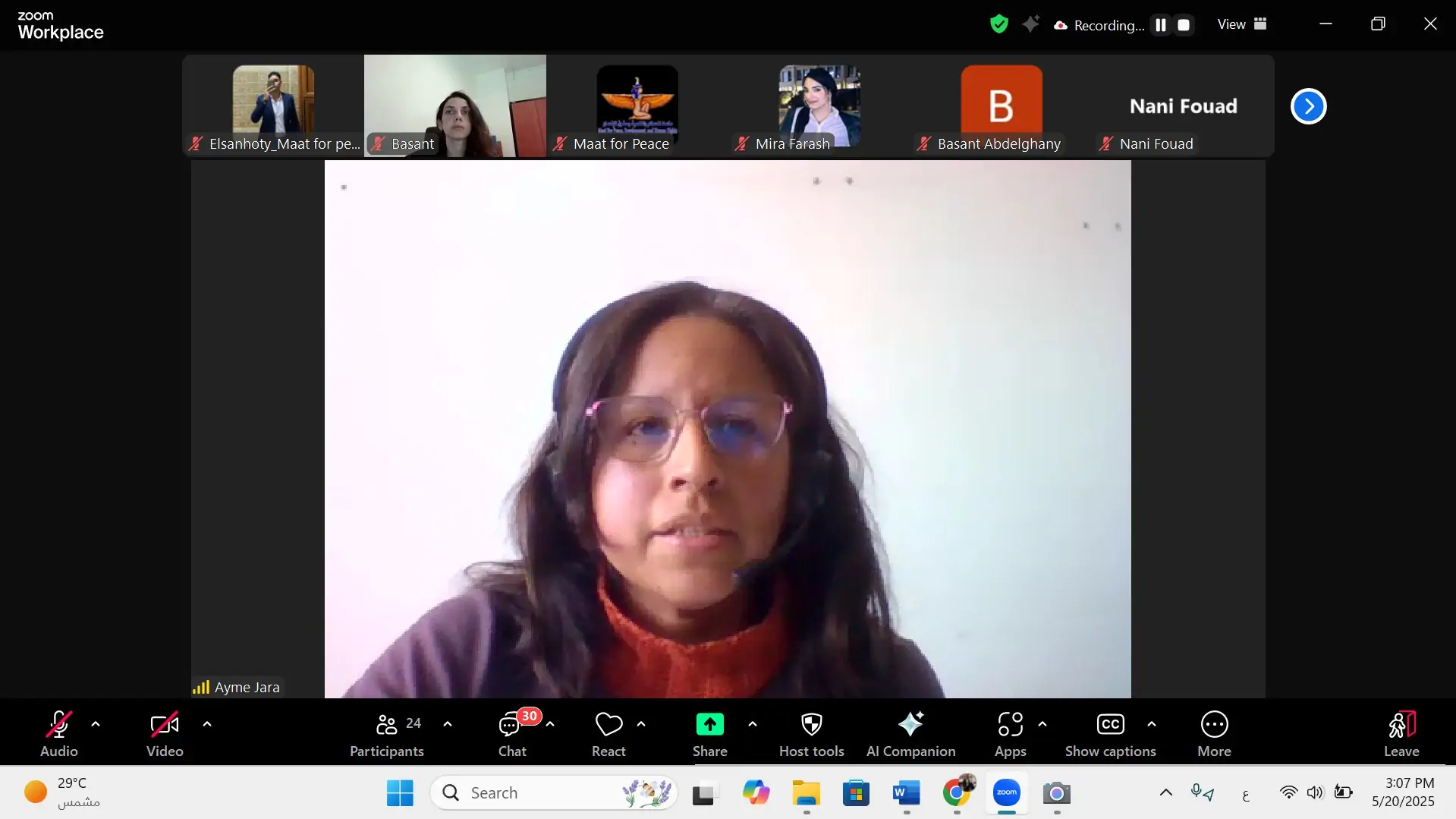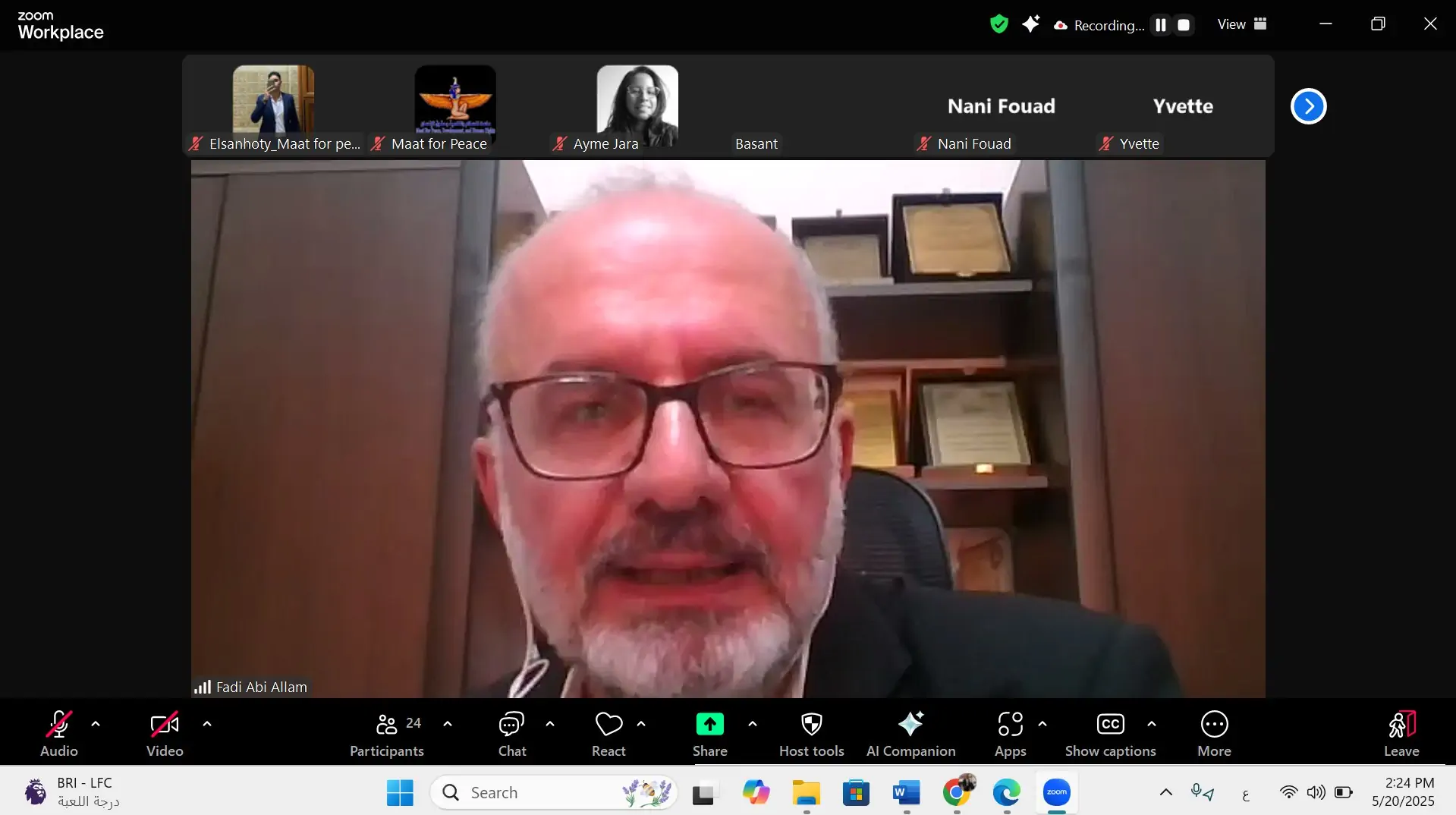As part of its participation in the Informal Preparatory Meeting to the Eleventh Conference of States Parties to the ATT (CSP11), held on May 20 and 21, 2025, Maat for Peace, Development, and Human Rights organized a virtual discussion titled "Role of International Human Rights Mechanisms in Promoting Responsible Arms Trade." The session aimed to highlight the vital roles played by international human rights system in regulating arms trade and reducing related violations, especially in conflict areas.
The session began with an opening speech by Mohamed Mokhtar, Director of International Law Unit at Maat, who emphasized the importance of integrating human rights standards into international arms trade regulation mechanisms and the necessity of imposing strict restrictions on arms exports to countries and parties involved in serious violations of international humanitarian law and human rights.
The discussion featured several regional and international experts, including Fadi Abu Allam of Permanent Peace Movement in Lebanon, who addressed the close relationship between the prevalence of human rights violations in the Arab region and the spread of arms. He pointed out the importance of Arms Trade Treaty in curbing these violations by establishing clear standards for export prohibition. He reviewed some relevant ATT provisions, highlighting examples from ongoing conflicts, such as the war in Gaza.
Pasant Abdel Majid, representative of Regional Unit for International Humanitarian Law at International Committee of Red Cross, explained that ATT is a central tool for promoting respect for international humanitarian law, particularly through Articles 6 and 7, which define the conditions for prohibition and the ethical assessment of arms transfers. She stressed the necessity for states to fulfill their treaty obligations and integrate international legal standards into their national systems.
Mira Farash, Deputy Director of International Mechanisms Unit at Maat, discussed the contribution of human rights mechanisms in monitoring arms trade. She noted that treaty bodies, special rapporteurs, and Human Rights Council play pivotal roles in monitoring violations, providing recommendations, and advocating for compliance with relevant legal standards. She provided examples of interventions by these mechanisms in arms trade issues, such as recommendations made during Universal Periodic Review process.
In this context, international expert Amy Jara emphasized the importance of having effective national legal frameworks to address irresponsible arms trade, stressing the need to hold arms production companies accountable to UN Guiding Principles on Business and Human Rights. She argued that transparency, regular reporting, and activating accountability mechanisms are essential foundations for regulating this sector and preventing associated violations.
At the end of the session, the speakers agreed that enhancing the role of international human rights mechanisms—including Human Rights Council, special rapporteurs, the High Commissioner, and investigative committees—is fundamental to ensuring a responsible arms trade that complies with international standards. They also highlighted the need to empower civil society organizations to issue reports and statements urging states to halt arms transfers to conflict areas, as well as the importance of cooperation and integration between these mechanisms and UN disarmament offices, especially UN Office for Disarmament Affairs (UNODA), to ensure a comprehensive and coordinated response to challenges related to illicit arms trade.
shortlink: https://maatpeace.org/en/?p=44805


